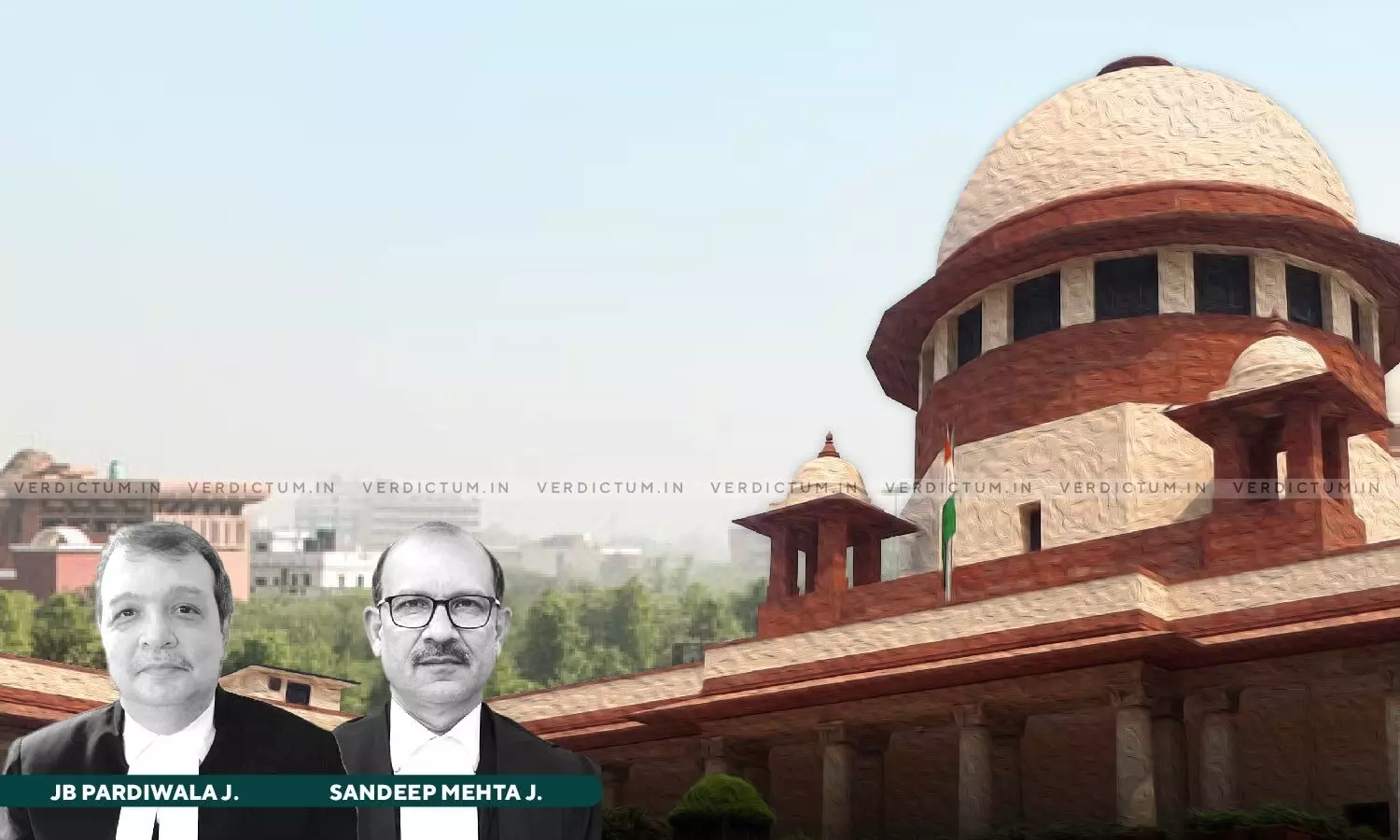
S 106(3) Railways Act | 6-Month Time Period For Making A Notice Of Claim, Is Only Attracted, When Refund Is For An Overcharge: SC
 |
|The Supreme Court held that 6-month time period for making a notice of claim under Section 106 (3) of the Railways Act, 1989, only applies when the claim is for a refund of an overcharge.
For all other charges, be it illegal or not, the said provision will have no application whatsoever, the court added while emphasizing fine distinction between 'overcharge' and 'illegal charge'.
The court ruled against the Railways in a case concerning overpayment of freight charges, noting that it imposed an unlawful fee on Indian Oil Corporation (IOC) for a distance of 444 kms instead of the actual distance of approximately 334 km.
The Bench of Justice JB Pardiwala and Justice Sandeep Mehta clarified that, "for a sum to be an “overcharge” within the meaning of Section 106(3) of the Act, 1989, it must be an overcharge on the date when such sum was paid. If on the date when the payment was made, the sum in question was not an overcharge, it will not become an ‘overcharge” due to intervention of subsequent events at-least in terms of Section 106 of the Act, 1989."
In that context, it was further specified that, "Otherwise, the same would lead to a very chilling effect, whereby a particular sum which at the time of payment was not an overcharge but due to subsequent events (not attributable to any mistake or lack of diligence) happens to become an overcharge after the lapse of the statutory time-period under Section 106(3) of the Act, 1989 i.e., 6-months after the date of payment, even then the said sum would not be refundable because no notice was made within 6-months. Thus, the claim for refund of an “overcharge” in such case would become timebarred owing to an impossibility i.e., making the notice within the time-period which could not have been made, as at the relevant point of time it was not an overcharge."
Counsel Rukhmini Bobde appeared for the appellant, while Counsel Shashwat Goel appeared for the respondent.
Between 2002 and 2005, IOC booked furnace oil consignments via Railways along a specific route, with freight calculated based on a 'total chargeable distance' of 444 kms. However, in April 2004, Railways changed their method of calculating chargeable distance, resulting in a discrepancy. Although the physical track length remained the same at 333.18 km, Railways continued to charge freight for 444 kms. IOC initially demanded a refund of the 110 km difference in freight charges for 122 consignments, but Railways rejected the claim.
IOC then took the matter to the Railway Claims Tribunal, where 45 claims were refunded within the statutory 6-month period, but 77 were dismissed as time-barred. The Tribunal acknowledged the discrepancy but deemed it an 'overcharge'.
IOC appealed to Allahabad High Court, which ruled in their favor, considering it an 'illegal charge' rather than an 'overcharge'. The Railways then appealed to the Supreme Court.
The Supreme Court observed that, "if on the date of payment, the sum was not an overcharge, neither is the right to claim refund emanating in terms of Section 106(3) nor is the corresponding duty i.e., neither the right nor the duty could be said to have arisen on the date of payment. Both the right to claim refund and the corresponding duty to refund must arise in synergy in terms of Section 106(3) of the Act, 1989. It would be too much to say that, although no overcharge was made in terms of Section 106(3), yet when the sum actually became an overcharge, the duty to seek refund will only be in terms of Section 106(3) of the Act, 1989".
Subsequently, the Apex Court concluded that the chargeable distance of 444 km was illegal for the following reasons:
(i) That, the effect of the change in methodology on the chargeable distance would not have resulted in a huge difference of 110 km,
(ii) That, there had been neither any change in the route by way of addition of new station nor change in the physical track length of the said route,
(iii) The letter dated 05.07.2005 itself indicates that the change in the chargeable distance of 444 km was due to an error, and has no bearing with the Ministry of Railway’s letter dated 07.04.2004 introducing the new methodology.
(iv) The factum of the appellants themselves granting refund without explaining the reason for the same, despite their stance that the respondent is not entitled to any refund.
(v) The failure of the appellant in establishing that the chargeable distance of 444 km was the correct chargeable distance as per the law.
(vi) Concurrent findings of both, the Railway Claims Tribunal and the High Court on the limited aspect of the actual distance being 333.18 km.
In light of the same, the order of the High Court was upheld and the appeals were dismissed.
Appearances:
Appellant: Counsel Rukhmini Bobde
Respondent: Counsel Shashwat Goel
Cause Title: Union of India vs M/s Indian Oil Corporation Ltd.
Click here to read/download the Judgment